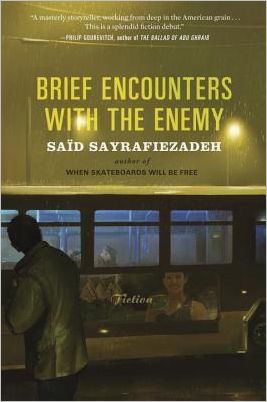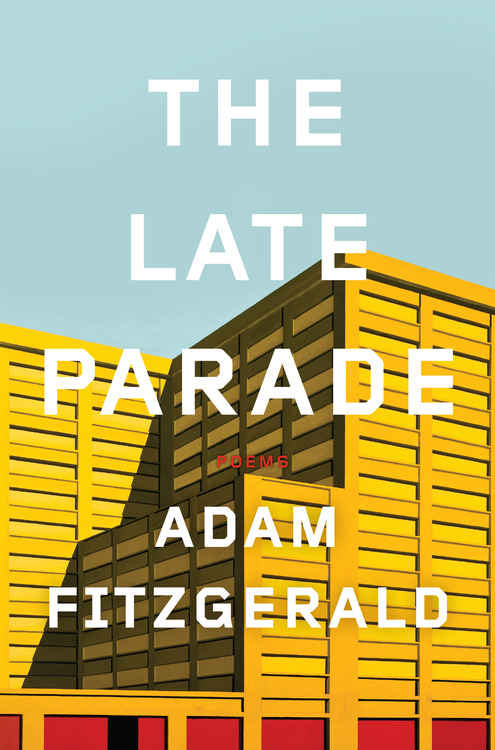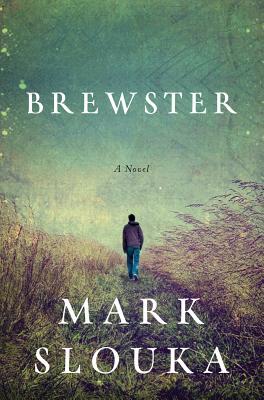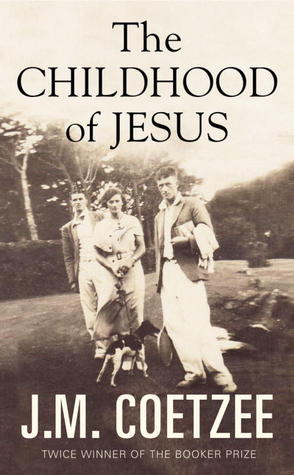 Oates selects this quotation from Coetzee:
Oates selects this quotation from Coetzee:
In the old way of thinking, no matter how much you may have, there is always something missing. The name you choose to give this something-more that is missing is passion. . . . This endless dissatisfaction, this yearning for the something-more that is missing, is a way of thinking we are well rid of. . . . Nothing is missing. The nothing that you think is missing is an illusion. You are living by an illusion.
And offers this interpretation:
“This is the vocabulary of Buddhist and Hindu epistemology: the world of transient attachments and desires is an illusion, and to free oneself from such is to free oneself from illusion. Yet to attain this enlightenment is, in a sense, to renounce what is fully human; it is a kind of death. Like an obtuse naïf, Simón is frequently rebuked. ‘This isn’t a possible world,” he is told, ‘it is the only world.'”
Review’s Review
Oates presents a lengthy study of The Childhood of Jesus as though fearing she has missed an important literary resonance. In seeking to make sense of this novel, she consults models from Plato, Bunyan, Wordsworth, Orwell, Borges, Cervantes, Thoreau — as well as earlier Coetzee works. Beyond the essayist’s own erudition, the essay fails to deliver a succinct counterpart to the moments of brilliance she picks out of the novel’s apparently “bleak and intransigent vision.”
Book The Childhood of Jesus by J.M. Coetzee (Viking, 2013).
Read the full New York Times book review . . .
Readings
Share book reviews and ratings with DV,
and even join a book club on Goodreads.
The Gifted Hammer: Poet as Simple Carpenter
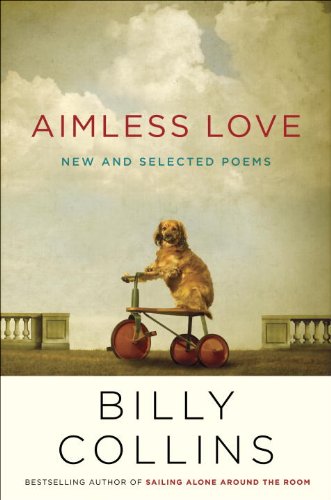 A Review of Aimless Love by Billy Collins
A Review of Aimless Love by Billy Collins
Billy Collins’ pen is a hammer that has been at work building a room for his poems in some pantheon or other. Sometimes that hammer has just the right surface for the nail it wants to hit. Other times, the nail remains unmoved.
For most people, and I count myself among them, this is OK. Collins has singlehandedly enlarged the audience for poetry by eschewing what he calls “gratuitous difficulty” in his own work and insisting on clarity above all else. As he put it in the same interview “. . . I appointed myself the poet who’s gonna feel free to take potshots at the whole enterprise. . . If you find yourself as a writer thinking about posterity you should probably go out for a brisk walk . . . “ He is a defender of humor in poetry, which is doubtless underutilized.
Aimless Love is a collection. (In this choice of title, bear in mind that Collins advised the same interviewer that “I’m speaking to someone I’m trying to get to fall in love with me.”) In addition to new poems, Aimless Love presents work published in Nine Horses, The Trouble with Poetry, Ballistics and Horoscopes for the Dead. I mention this as a purchaser of these previous texts. There is an appreciable per-page value in this collection.
Among the new poems are some that will bring a smile, perhaps against one’s better judgment. For instance, “To My Favorite 17-Year Old High School Girl” both chides and forgives its subject, despite wistful glances at teen overachievers Schubert, Annie Oakley and Maria Callas. In “Lesson for the Day,” Marianne Moore is flattened and left “hanging out to dry.”
There are poems that do not seem to rise above common prose, e.g., “Best Fall” and “Lucky Bastards” seem more like reminiscences. In a not-so-distant past, such efforts would have been tucked into a charming private correspondence.
Given the opinions Collins has voiced about clarity and simplicity, it is ironic that he often chooses topics that mainly appeal to writerly sorts. For instance, he frequently writes about the discipline of writing, or about other poets. In “Dining Alone,” he refers to “Not until I would hear the echo of the front door / closing behind me could I record / in a marbled notebook.” In the fixed-verse send-up “Villanelle,” he pens the self-aware tercet “The first line will not go away / though the middle ones will disappear, / and the third, like the first, is bound to get more play.” Despite this steadfast adherence to offhandness, individual lines vacillate between plain and “poetic” diction, as in “Here and There”:
I feel nothing this morning
except the low hum of the ego
a constant, shameless sound behind the rib cage.
I even keep forgetting my friend in surgery
at this very hour.
In other words, a perfect time to write
about clouds rolling in after a week of sun
and a woman beating laundry on a rock
in front of her house overlooking the sea —
all if which I am making up —
the clouds, the house, the woman, even the laundry.
In contrast to some realist poets who pepper lines with SKUs from Walmart shelves, QwikMart signage and unparaphrased New York Times headlines, Collins uses the everyday sparingly. In this, he is, thankfully, a ruthless editor. Collins insists that readers accompany him on the everyday so that he can trick them into a gentle insight or two. His everyday, we assume, is about writing and speaking engagements and the occasional sipping of wine. So are the poems. In “American Airlines #171,” he offers up an metaphor, then gently undresses it:
life’s end just around another corner or two
yet out the morning window
the thrust of a new blossom from that bush
whose colorful name I can never remember.
Despite the humility in evidence throughout this collection, there are very successful poems present. Closing out the “new” group is “The Names,” one of the strongest poems Collins has written. A very small taste:
Names written in the air
and stitched into the cloth of the day
A name under a photograph taped to a mailbox.
Monogram on a torn shirt,
I see you spelled out on storefront windows
And on the bright unfurled evening of this city.
I say the syllables as I turn a corner –
Kelly and Lee,
Medina, Nardella, and O’Connor.
The proper nouns in the poem take on a lilt and sibilance. It produces just the right commemorative effect. This is an unforgettable poem.
Collins is a steady presence these days. At the time of this review, he can be heard substituting for Garrison Keillor’s regular readings in The Writer’s Almanac. At the same time, in a pantheon somewhere, a person having great trouble suppressing a smile will be reading a Collins poem aloud to a loved one.
The intention is anything but aimless.
[An Amazon Vine review]
Readings
Share book reviews and ratings with DV,
and even join a book club on Goodreads.
Robin Romm on “The Faraway Nearby” by Rebecca Solnit
“Shape as a preoccupation makes sense in a book about storytelling. Shapes and lines create order out of chaos, or at least highlight possible orderly paths through it. Solnit’s personal “story of sorts” brings together episodes from a difficult year in her life, one that included a breakup, a brush with her own mortality, and her mother’s descent into Alzheimer’s. . .
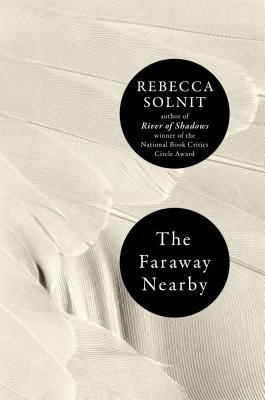 “Some of her most interesting ideas are born of wild mash-ups. In ‘The Faraway Nearby,’ for instance, after describing vanitas paintings, which portray emblems like bubbles or clocks to suggest ‘the futility of human cravings, aspirations and attachments in the face of the transience of all things,’ she leaps to the image of her breast on a mammogram: such digital X-rays are modern-day vanitas pictures, she writes, ‘reminders of your frailty and the fleetingness of all things, particularly your own flesh, a bubble sustained by breath.’”
“Some of her most interesting ideas are born of wild mash-ups. In ‘The Faraway Nearby,’ for instance, after describing vanitas paintings, which portray emblems like bubbles or clocks to suggest ‘the futility of human cravings, aspirations and attachments in the face of the transience of all things,’ she leaps to the image of her breast on a mammogram: such digital X-rays are modern-day vanitas pictures, she writes, ‘reminders of your frailty and the fleetingness of all things, particularly your own flesh, a bubble sustained by breath.’”
Read the full review . . .
Readings
Share book reviews and ratings with DV,
and even join a book club on Goodreads.
Steve Almond on “Brief Encounters with the Enemy” by Said Sayrafiezadeh
“His prose has an allegorical quality that is long on evocation and short on specifics. We have no idea why the war started, for example, or against whom it is being waged. We know only that it’s been great for business. The weather has gone haywire, though no reference is made to global climate change. The accounts assembled here read less like dispatches from America in particular, and more like the existential fables of an empire in decline.
The most striking symptom of this decline is a perverse merger of patriotism and consumerism.”
Read the full review . . . .
Reviewer Steve Almond
Story Collection Brief Encounters with the Enemy (Dial Press, 2013) by Said Sayrafiezadeh
Readings
Share book reviews and ratings with DV,
and even join a book club on Goodreads.
David Kirby on “Late Parade” by Adam Fitzgerald
.
“No, his is a third way, a poetry that is neither sealed off from human ears nor bent solely on pleasing them. In a word, his poems are drunk on both word and allusion and are therefore doubly tipsy. There are plenty of poets who are word-drunk and plenty of others who slap down allusions faster than a blackjack dealer. But I can’t think of anyone today who is dealing in both currencies as fluidly as Fitzgerald.”
.
Reviewer: David Kirby
Book: The Late Parade (Liveright/Norton) by Adam Fitzgerald
Readings
Share book reviews and ratings with DV,
and even join a book club on Goodreads.
Eleanor Henderson on Brewster by Mark Slouka
“Slouka’s storytelling is sure and patient, deceptively steady and devastatingly agile. Like Ray, the profoundly lovable hero, “Brewster” is full of secrets, and they are tragic ones: there is no sadder fate than being hated by someone who should love you. Yet the story manages to transcend its hopeless circumstances. All the tender feelings these kids’ parents should feel for them are transferred to us. We love them. They are our children, and in loving them, they are saved, and so are we.”
Reviewer: Eleanor Henderson @eleanorofithaca
Book: Brewster (Harcourt) by Mark Slouka
Read the full review . . .
Readings
Share book reviews and ratings with DV,
and even join a book club on Goodreads.


















